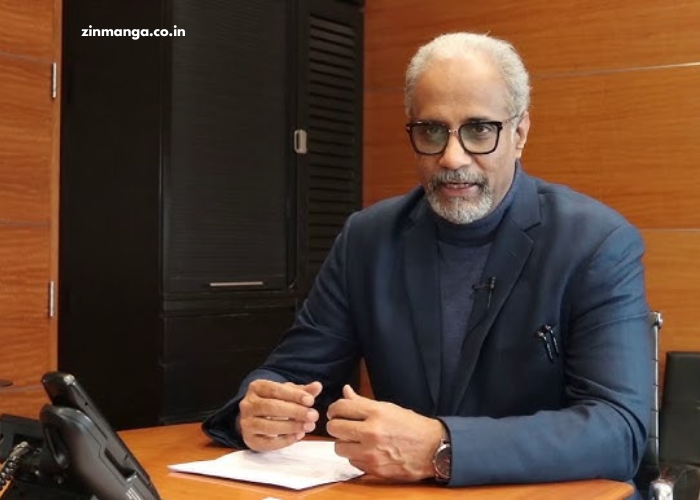In today’s competitive business environment, negotiation is an essential skill that separates successful leaders from the rest. Mastering business negotiations is not just about securing the best deals but also about building strong relationships, fostering trust, and navigating complex challenges. Whether you’re negotiating with clients, partners, employees, or suppliers, strong negotiation skills are a key part of leadership success. This article will explore the core skills that every leader should develop to master business negotiations.
The Importance of Business Negotiations for Leaders
Negotiation is more than a simple back-and-forth exchange of offers and demands. It’s a strategic process that impacts the future of your business, your personal reputation, and your leadership effectiveness. In any negotiation, the stakes are high, and the ability to secure favorable outcomes for all parties involved is crucial.
Leaders who excel in negotiations are able to build long-term partnerships, increase profitability, and steer their organizations toward growth. They know how to navigate difficult conversations, solve problems creatively, and maintain a professional demeanor under pressure. In short, mastering negotiations allows leaders to align their objectives with those of others, ensuring mutually beneficial outcomes.
The Core Skills Every Leader Needs for Successful Negotiations
To be a successful negotiator, leaders must develop several key skills. These include emotional intelligence, strategic thinking, effective communication, patience, and adaptability. Let’s explore each of these in detail.
1. Emotional Intelligence: Understanding and Managing Emotions
One of the most important skills for any leader, especially in negotiations, is emotional intelligence (EI). EI involves the ability to recognize, understand, and manage your own emotions, as well as the emotions of others. In high-pressure negotiations, emotions can run high, and it’s easy to lose control. However, a leader with high emotional intelligence remains calm, composed, and focused.
Key Aspects of Emotional Intelligence in Negotiations:
- Self-awareness: Knowing your own emotions and how they might affect your behavior during a negotiation.
- Self-regulation: Managing your emotions, especially in stressful or confrontational situations.
- Empathy: Understanding the emotions and perspectives of the other party. Empathy helps you anticipate their reactions and find mutually agreeable solutions.
- Social skills: Building rapport and maintaining positive relationships, even after a negotiation ends.
By honing emotional intelligence, leaders can maintain control over their reactions, making them more effective negotiators.
2. Strategic Thinking: Preparing for Success
Effective negotiation starts long before the actual conversation. Strategic thinking is the ability to plan and anticipate what will happen in a negotiation, both for you and for the other party. Leaders who think strategically come to the table well-prepared with a clear idea of their objectives and a flexible plan for achieving them.
Key Elements of Strategic Thinking in Negotiation:
- Research: Gathering information about the other party’s interests, values, and negotiation style.
- Setting clear goals: Defining what you hope to achieve in the negotiation and identifying acceptable outcomes.
- Flexibility: Being open to adjusting your approach if the circumstances change or if you encounter new information.
A strategic thinker is always prepared for multiple scenarios and can adjust their approach as needed to secure the best possible deal.
3. Effective Communication: The Art of Listening and Speaking
Communication is the cornerstone of any negotiation. As a leader, the way you communicate can significantly influence the outcome of a deal. Effective communication involves not just speaking clearly but also listening attentively and reading the other party’s body language. A leader who excels in communication ensures that both parties understand each other’s needs and goals.
Key Communication Strategies for Negotiation:
- Active listening: Listening with the intent to understand, rather than simply waiting to respond. This helps you gather crucial information and build rapport.
- Clarity and precision: Expressing your points clearly and concisely. Ambiguity can lead to misunderstandings and missed opportunities.
- Non-verbal communication: Paying attention to body language, facial expressions, and tone of voice. These can reveal unspoken concerns or priorities.
- Ask open-ended questions: Encourage the other party to share their needs and concerns by asking questions that prompt deeper discussion.
By focusing on clear, empathetic, and active communication, you create an environment where both parties feel heard, valued, and understood.
4. Patience: Avoiding Impulsive Decisions
Patience is a critical virtue in business negotiations. Leaders who rush to finalize deals without fully understanding the terms or considering alternatives often make mistakes. Patience allows leaders to consider all aspects of a negotiation, weigh the pros and cons, and avoid making hasty decisions that could have negative consequences.
The Role of Patience in Negotiations:
- Giving the process time: Negotiations can take time to reach an agreement that benefits both parties. Rushing can lead to compromises that aren’t optimal.
- Allowing space for negotiation: Sometimes the best deals emerge when both sides have had enough time to consider their options and come back to the table with fresh perspectives.
- Managing expectations: Patience helps you manage both your own expectations and those of the other party, allowing for more realistic and sustainable agreements.
Incorporating patience into your negotiation style gives you the ability to wait for the right deal and ensure that all parties are satisfied with the outcome.
5. Adaptability: Responding to Change and Surprises
Business negotiations often come with unexpected twists and turns. To remain effective, leaders must be adaptable—able to respond to new information or shifts in the negotiation dynamics without losing focus on their objectives. Being adaptable allows you to stay ahead of the game, even when things don’t go as planned.
Why Adaptability is Important in Negotiations:
- Managing the unknown: Unexpected events or new information can alter the course of a negotiation. Leaders who can pivot quickly are better positioned to handle surprises.
- Negotiation style adjustment: The other party’s negotiation style may change as the conversation progresses. Adaptability ensures that you can adjust your approach accordingly to stay in control.
- Finding creative solutions: When faced with obstacles, adaptable leaders are more likely to find innovative solutions that benefit all parties.
Adaptability is essential for leading successful negotiations that result in favorable, long-term outcomes.
6. Problem-Solving: Creating Win-Win Solutions
Effective leaders are problem-solvers, and this skill is especially important in business negotiations. Negotiations are often driven by a problem or challenge that both parties must address. Leaders who can think critically and creatively about solutions help drive negotiations forward and create value for everyone involved.
How Problem-Solving Enhances Negotiation Success:
- Identifying underlying interests: Sometimes the issues on the surface are just symptoms of deeper concerns. Problem-solving allows you to uncover the real issues at play.
- Proposing creative solutions: Leaders who think outside the box can propose solutions that might not be immediately obvious but could satisfy both parties’ interests.
- Maintaining a collaborative mindset: Successful negotiations are about finding a win-win solution. Leaders who prioritize collaboration rather than confrontation can help both parties achieve their goals.
By focusing on problem-solving and value creation, leaders can navigate complex negotiations and arrive at mutually beneficial outcomes.
7. Confidence: Projecting Strength and Credibility
Confidence is a key characteristic of effective negotiators. Leaders who project confidence instill trust and demonstrate that they are in control of the situation. However, confidence should not be confused with arrogance. A confident negotiator is self-assured but also respectful of the other party’s needs and concerns.
The Role of Confidence in Negotiations:
- Establishing credibility: Confidence helps you build trust with the other party, who is more likely to take you seriously if you appear knowledgeable and self-assured.
- Handling challenges: Negotiations often involve obstacles or moments of tension. Confident leaders remain calm and assertive, guiding the conversation back on track.
- Projecting authority: As a leader, your confidence influences how others perceive your decision-making and leadership ability. Strong negotiation skills enhance your overall credibility.
By developing confidence, you convey strength and professionalism, which is crucial to successful business negotiations.
Conclusion: Becoming a Master Negotiator
Mastering business negotiations is a continual process of learning, refining skills, and adapting to new situations. Leaders who cultivate emotional intelligence, strategic thinking, communication skills, patience, adaptability, problem-solving abilities, and confidence are better positioned to achieve successful outcomes in negotiations.
As you develop these skills, you will not only improve your negotiation effectiveness but also strengthen your leadership qualities and ability to drive long-term success for your organization. The most successful leaders are those who understand that negotiation is not just a skill but a mindset—one that can transform relationships, open up new opportunities, and create lasting value for all involved.
By mastering the key skills outlined above, you will be well on your way to becoming a more effective and impactful leader in the world of business negotiations.




